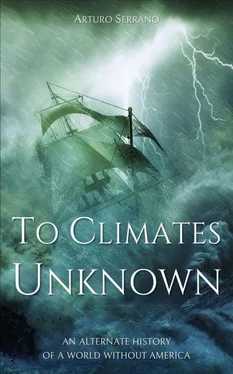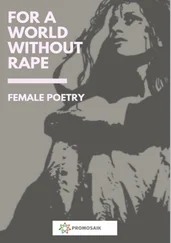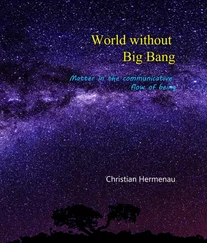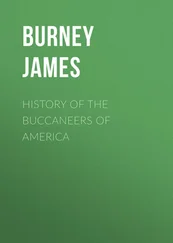Arturo Serrano - To Climates Unknown - An Alternate History of a World Without America
Здесь есть возможность читать онлайн «Arturo Serrano - To Climates Unknown - An Alternate History of a World Without America» весь текст электронной книги совершенно бесплатно (целиком полную версию без сокращений). В некоторых случаях можно слушать аудио, скачать через торрент в формате fb2 и присутствует краткое содержание. Город: Bogot,a, Год выпуска: 2021, ISBN: 2021, Издательство: Amazon, Жанр: Альтернативная история, на английском языке. Описание произведения, (предисловие) а так же отзывы посетителей доступны на портале библиотеки ЛибКат.
- Название:To Climates Unknown: An Alternate History of a World Without America
- Автор:
- Издательство:Amazon
- Жанр:
- Год:2021
- Город:Bogot,a
- ISBN:979-8-75808-648-3
- Рейтинг книги:3 / 5. Голосов: 1
-
Избранное:Добавить в избранное
- Отзывы:
-
Ваша оценка:
- 60
- 1
- 2
- 3
- 4
- 5
To Climates Unknown: An Alternate History of a World Without America: краткое содержание, описание и аннотация
Предлагаем к чтению аннотацию, описание, краткое содержание или предисловие (зависит от того, что написал сам автор книги «To Climates Unknown: An Alternate History of a World Without America»). Если вы не нашли необходимую информацию о книге — напишите в комментариях, мы постараемся отыскать её.
To Climates Unknown: An Alternate History of a World Without America — читать онлайн бесплатно полную книгу (весь текст) целиком
Ниже представлен текст книги, разбитый по страницам. Система сохранения места последней прочитанной страницы, позволяет с удобством читать онлайн бесплатно книгу «To Climates Unknown: An Alternate History of a World Without America», без необходимости каждый раз заново искать на чём Вы остановились. Поставьте закладку, и сможете в любой момент перейти на страницу, на которой закончили чтение.
Интервал:
Закладка:
Samuel’s hands paused as he let every strand of his being accept the invitation. “I’d love to go with you. What you have showed me is worth more than all I thought I’d learned.”
“Is that behind you now?”
“Yes. Even in the middle of all this death, even knowing that more death will descend on this land, I’m ready to let go of all of it. I’m ready to go with you.”
Wiin stepped in front of him, embraced him closely, and gave him a kiss. And the two of them, after burying Bridget by the end of the demolished bridge by Lake St. Louis, started the walk to the nearby lands of the Ojibwe, where Odahingum relayed what wiin’d seen while visiting the French, and Samuel, for the years that remained of his life, could finally forget about murderous quarrels and warships and slavery and greedy empires and disputes of faith.
Part 2: Setback
Things that appear unrelated actually have some sort of natural link.
Cicero, On DivinationIt is beneath God’s majesty to know how many gnats are born every second.
Saint Jerome, Commentaries on the Minor ProphetsNight, June 7 (Gregorian), 1610
La Flèche
Every student was required to attend the Mass for the assassinated king.
A four-day procession had brought his heart from Paris, as the late Henri had wished. The school had been chosen as the last stop in the nation’s public act of mourning, as well as a posthumous gesture of reconciliation in a hard time. No higher endorsement could have been made in favor of the Jesuit Order than handing over to their custody the heart of a repentant Huguenot. The years of royal banishment had ceased; the standing of the Order was secure.
Upon walking out of the school chapel, his ears numb from an entire week of hymns, René du Perron saw Father Charlet standing alone in the playground, thinking. A distant relative of his mother’s, the rector had been a caring mentor, even granting René dispensation from morning prayers and exercises out of consideration for his health. The young René would never be quite weaned from that penchant for having his elders make exceptions to the rules for his sake.
He approached Father Charlet with slow steps, curious but fearful of disturbing what looked like a deeply private moment. An evening drizzle had showered the school, and the earth, under the waning moonlight, shone with the muddy footprints of the boys who were still leaving Mass for their bedrooms. They went past Charlet without noticing the worried expression shown on his face. It occurred to René that, were it not for the sound of shoes against slushy ground, he might almost hear what the man’s thoughts were.
René waited for the others to leave and walked toward the rector with caution. “Good evening, Father,” he ventured, before realizing he had been seen coming.
“Good evening, Monsieur du Perron. You want to tell me something? A moment ago it seemed to me that His Majesty’s death must have particularly saddened you.”
René didn’t know what to say to that. He wasn’t expecting to be the one whose personal feelings would be discussed. It was true that the school existed due to the late king’s generosity, and the building itself had once been his home. But to a student, or to anyone who was his same age, that mattered little.
“It is written that we all have to die,” he replied, staring firmly at his shoes.
The rector’s shadow on the ground shifted and René looked up. He was smiling now. “This isn’t catechism. You don’t need to parrot an answer I already know if you didn’t hear me ask in Latin.”
René liked it when teachers respected his intelligence as an equal’s, but one part of him had grown mature enough to question whether he might be getting a bit too accustomed to such treatment. “Forgive me, Father. I thought you might be pondering mysteries in the heavens.”
Charlet gave a reluctant nod. “Death is the one mystery we can’t contemplate.”
That answer did not satisfy René; he had seen him at other funerals. “If death is always unfathomable, why is a king’s stranger than a peasant’s?”
“Because peasants are not chosen by God, but kings are. It pleased God to save Henri when one of my Order tried to kill him, and it pleased Him to allow a poor lost soul to succeed at the attempt this time. Since ours is not a God of disorder, His decrees always carry some meaning.”
“But don’t all of us die by His decree? Surely my death will have a meaning, too?”
The priest closed his eyes. The only reason he had wanted fresh air in the first place was that the king’s death had reminded him of another, less significant one, that should not have troubled anyone’s mind, but had obsessed philosophers for years. The tale might benefit René, but first he needed to remember his duties. Even a true teaching at the wrong time could put his soul in eternal danger. “Quae sunt virtutes contra superbiam?”
“Sunt humilitas et obedientia.”
“Good. Now that we’re done with formalities, I have a tale for you, and a lesson. Before I begin, I must warn you that this is very advanced theology, but I feel it may be what you need now.”
“It won’t harm me, Father. I’m listening.”
The rector wished that René didn’t have so much eagerness to know things beyond his comprehension. Faith, as defined by Trent, precluded all curiosity. He asked himself whether it would be wise to go ahead and tell the story, but seeing the effect of its mere promise, not telling it seemed now the worse option. “Have you heard about the Congregatio de Auxiliis ?”
“I have not, Father.”
“Few books exist discussing that topic. There was a disagreement, years ago, between the Order of Preachers and us, about free will and predestination. We hold that humans are free to accept or reject God’s gift of salvation, but the Dominicans have been deceived by the lies of Luther, who denied free will.”
“I would have liked to hear that discussion.”
“No, it went on for too long. It was cause for much bitterness. We even accused each other of heresy. In the end, the Pope decided to cease the debate. He forbade all new books on the matter. But he declined to say which side had won.”
“Why? The answer was clear. Your position was supported by natural reason.”
“Yes, but they had Augustine and Thomas.”
René bit his tongue to avoid saying that high authorities should not matter. “It must have been hard to argue with them.”
Charlet nodded. “Hard indeed. Moreover, the debate branched out to germane issues. To prove or disprove predestination, we had to cover the nature of time, the properties of divine foreknowledge, the number of types of the gift of grace, the limits of unaided human choice, the truth value of counterfactual claims, every shred of Scriptural evidence, and the other side’s counterarguments. It was fascinating, but exhausting.”
“Were any new doctrines formulated?” asked René, with evident excitement.
“That is not what philosophy is for! Now pay attention, Monsieur du Perron, to what I’m trying to explain to you.”
“Forgive me, Father. I’ll keep listening.”
“Our discussions on God’s supreme judgment were stalled by a needless controversy. In the middle of deliberations, one of the Dominican debaters forced us to hear an obscure incident he had been told while teaching in England. He said he had been so impressed by it, so moved to long nights of meditation, that he took all his speculative work to be worth nothing in the face of our fundamental helplessness in the world. He said it demonstrated beyond doubt that we are as clay in the hands of God, and that any pretension of freedom on our part is a foolish illusion. Keep in mind, he had already become a moderately successful scholar on all manners of doctrinal dispute. He told us he had planned to write much more, and he renounced all that after hearing the story that you are going to hear. He left England and did penance to be reconciled with the Order of Preachers. They were happy to have him back, because this friar was nothing short of brilliant.” He saw with delight the expectation on René’s face and continued speaking. “In England, when that most detestable Elizabeth reigned, there was a Satan-spawned corsair she was bestowing honors upon. During the rite, a bridge broke up, and a hundred people fell to the Thames. The unforeseen mishap harmed no nobles, but it did cause the death of one low-born. He couldn’t have been much older than you; he was barely an apprentice sailor. But you cannot conceive of how many tomes of treatises and commentaries have been wasted by that apostate Church of England in dissecting the meaning of one random, accidental demise.” He stopped talking when he saw René’s face. “Are you feeling well, Monsieur du Perron?”
Читать дальшеИнтервал:
Закладка:
Похожие книги на «To Climates Unknown: An Alternate History of a World Without America»
Представляем Вашему вниманию похожие книги на «To Climates Unknown: An Alternate History of a World Without America» списком для выбора. Мы отобрали схожую по названию и смыслу литературу в надежде предоставить читателям больше вариантов отыскать новые, интересные, ещё непрочитанные произведения.
Обсуждение, отзывы о книге «To Climates Unknown: An Alternate History of a World Without America» и просто собственные мнения читателей. Оставьте ваши комментарии, напишите, что Вы думаете о произведении, его смысле или главных героях. Укажите что конкретно понравилось, а что нет, и почему Вы так считаете.












